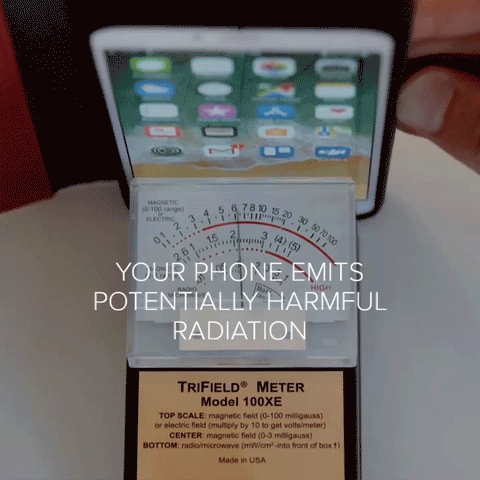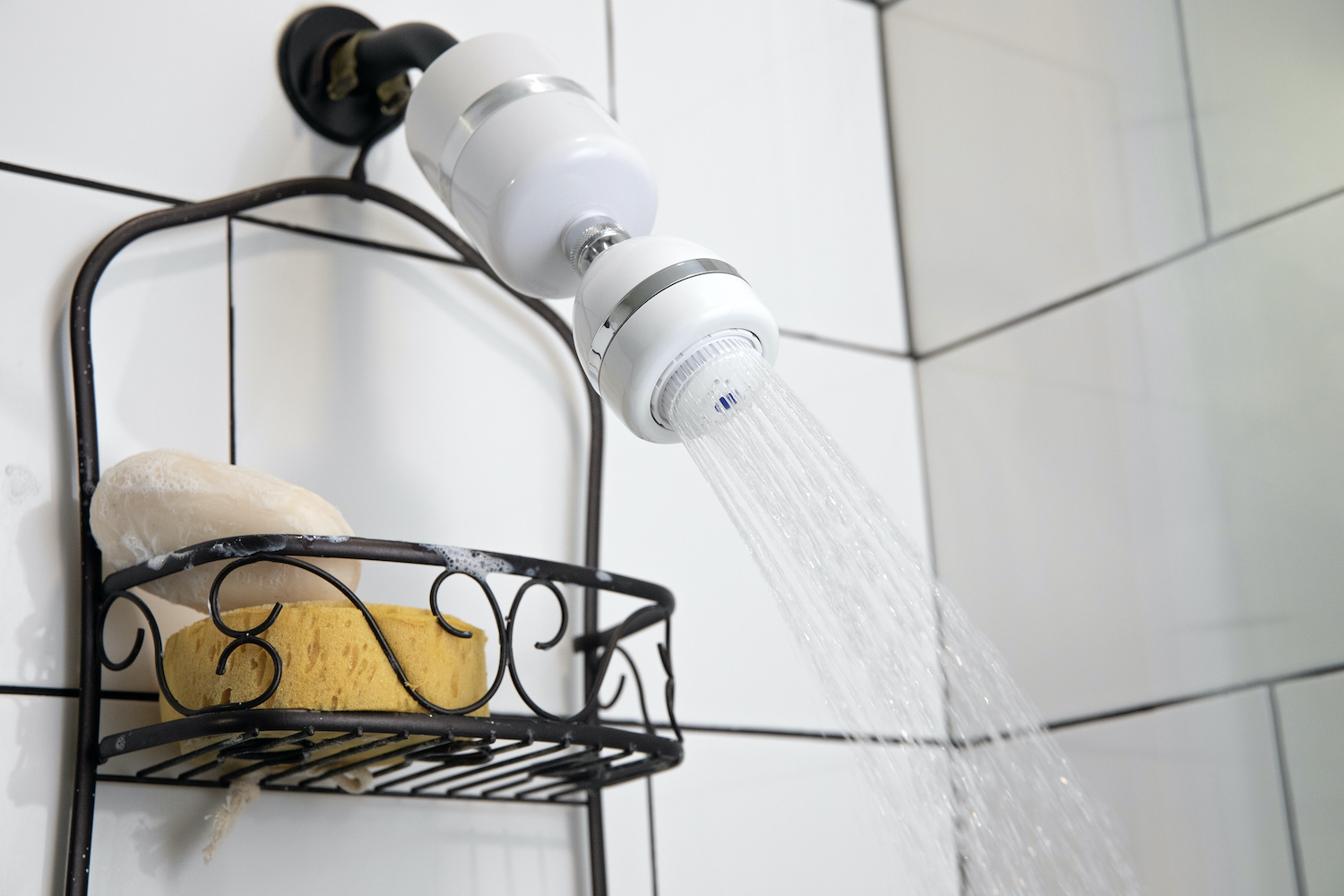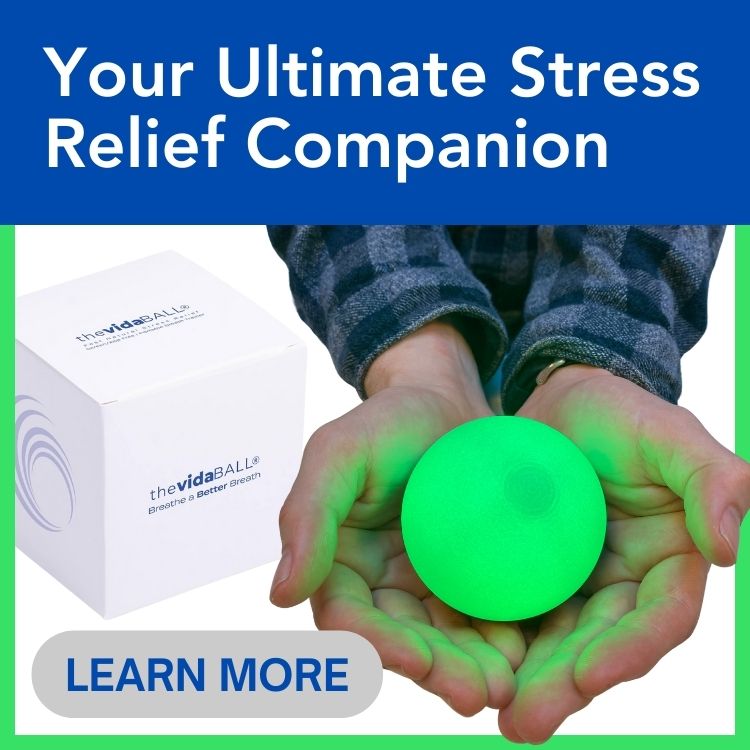Ivelisse:
Welcome to today’s episode on the Believe Big podcast. My name is page and it’s an honor to spend this time with you. One of my favorite parts of what we do at believe big is getting the honor to work with and speak to inspiring individuals who overcome great odds. My guest today, Kevin McDowell is one of these amazing individuals.
Kevin is not only a cancer overcomer, but he is also a seven time world cup medalist, and recently won a silver medal in the 2020 Olympics. Welcome Kevin to the show. Hey, thanks for having me. It’s cool to hear that some of my goals achieved well to start our show. I always like to find out what our guests favorite health tip.
And I know as an Olympian, you must have many, so would you mind sharing one with us?
Kevin:
Yeah, I think my biggest health tip would probably be just get out the door and do some form of activity. I mean, it could be walking around your block, [00:01:00] one lap around the block, just set the time in the day.
Cause everyone has five, 10 minutes that you could do that, that you could be off your phone and do that. You could even put on a. A couple of songs and go do something or do 10 minutes of core, some kind of form of activity to get out the door, whether it’s in your house or something, or a little bit of yoga, there’s a bunch of apps for that.
But yeah, I’m a big believer in just getting out to do something. Yeah. So important, you know, especially here, we’re both in Colorado, so it’s, we have a 330 days of sunshine, so it makes it easy to go out and just even walk. So, it really does. Yeah. So when you were 18, Kevin, I’d love to just hear a little bit about your story.
Ivelisse:
You were diagnosed with Hodgkin lymphoma. Can you share about how you found out and what you experienced?
Kevin:
Yeah. So to get it back ground, I was 18 senior in high school, and I had big goals. I wanted to go to college, but also become professional triathlete and actually had done my [00:02:00] first professional triathlon race.
And so I got home that night, super excited when as well, as better than I could have imagined it, that my goal that year was to win the junior world championships. Cause I was the favorite returner from the previous year where I was third and my mom’s a nurse. So she saw this lump on my neck and she’s kind of like, didn’t like how it looked, but I didn’t think much of it.
So she took me into, um, the doctor’s office where she works the next day and he did some looking at it, some scans and then blood work and different things. And at first we thought it might’ve been like a tendon muscle tear or something and a ball coiled up. Cause they weren’t sure. Cause my lab, my blood work was fine, but I went in that night, got an MRI.
And the next day, I got called home from, I was at, my coach’s place talking to him about like, what was next with the goals and everything. And I was, they broke the news, I had cancer, so, wow.
Ivelisse:
Wow. I, as a mom of four hearing that just [00:03:00] even chokes me up a little bit, because that is not the words you want to hear from as a, parent, that one of your children is diagnosed, but , how did it make you feel, you know, an 18 year old, what were you thinking at the time?
Kevin:
Yeah, you know, it was almost like I was in shock. I mean, you’re 18, you’re in the prime. It feel like you’re the permanent, if you kind of feel like you’re invincible. I mean, I just raised really well too. I knew I was healthy. I did all the things, right. I didn’t, I never like, obviously smoked and I obviously didn’t drink.
I ate super well, I exercise I got sleep. So. You had none of these precursors that get it, but that’s pretty much how it happens when kids are diagnosed, it’s just happens. And so, you know, but I looked at it and I said, all right, like what do we have to do? Like, what’s the prognosis? And a couple days later we got the biopsy and then learned it was Hodgkin’s lymphoma.
We kind of had an early little celebration because we knew Hodgkin’s lymphoma was really curable. And we were fortunate. We caught it earlier on than it could have been because my mom’s a nurse and saw this one before from the neck. Um, [00:04:00] so we got the process of what it was six months chemotherapy. And I said, all right, let’s do this.
This is my new goal. Let’s beat cancer. I’m like, it was a bummer that my triathlon season for that year was done. And I wasn’t going to do my goals I wanted. And it wasn’t also, it was my senior year of high school. So I missed out on it, quite a bit of things, but I still got to enjoy a lot through that and made the most of it.
Well, I could with that balance, but yeah, it was all about becoming the best cancer patient, not the best athlete or best student, but best cancer patient to beat cancer. That’s what was my mindset. , and I think you had such a heads up more than most people because of your athletic mindset. I read in people magazine that you, while you were battling cancer and watching the Olympic games that you imagined yourself there one day.
Ivelisse:
Can you tell us about that?
Kevin:
Yeah I had been doing traveling since I was 10. And my first Olympics that I watched that I can remember, it was the 2004 Olympics at Athens and I saw triathlon was in there. And I was like, this is a sport I want to do. And I want to get to the Olympics. That was always my goal that [00:05:00] I had ever since I was young.
And then when I got cancer, My seasons was still going on. The Olympics were the following years. There were a lot of Olympic trial qualification races a year out, a lot of time. So I was watching all those. and envisioning one day, I still want to be out there in that position to try and qualify for the games and competing back at that level.
I said, right now I’m not there. And, but I believe I can be cancer and get back there. So at that time that’s kind of what kept me. Well, you know, it’s funny , that they have so many studies that have been published, showing that guided imagery could indeed produced changes in actual your immune activity on a cellular level.
Ivelisse:
So by you believing and seeing yourself there, you’re actually helping your immune system to fight. So that’s just such so incredible that at 18, you were, having such a mindset, such a strong mindset. And, I know for me when I was, overcoming cancer. When I was in the middle of my cancer battle, I felt like the fear and the anxiety I [00:06:00] felt was worse than the cancer itself.
Did you experience any fear or anxiety during that time?
Kevin:
So that’s the thing it’s like I actually sit before, as the hardest part for me with the whole cancer was the post-cancer. So for me, as precaution, I knew like the process, like what I had to do, it was going to be tough chemotherapy.
Like it’s going to be a hard six month road, but my odds were very, very good. So it never really creeped in my mind. I never let myself think like, oh, am I not going to live? I mean, I can make it through this, but I was like, I’m going to get through this and get right back to normal life. And I’m going to be fine things, zoom just a little blip in my road, but I was wrong.
It was a very like, I would got through cancer, all was great, but I didn’t realize the toll it took on my body. And one thing that I actually really struggled with was I saw so many people while I was going through cancer that didn’t make it like that, or were way sicker than me and was in the hospital for a month or two,
I’m so fortunate and lucky that I actually didn’t credit myself, that I actually went [00:07:00] through cancer. In some ways I almost convinced myself, I wasn’t battling cancer. Like my chemotherapy was nothing because. I Made it through and I’m okay. But it took me years to understand, actually I used to always say how little, like I went through and it wasn’t that big of a deal, but my mom and they were like, it was a huge deal.
You just changed your mindset through it, which I didn’t let myself really understand and respect what my body had been through that. I didn’t went back to normal life right away instead of letting myself recover. From all the damage that it done. So it took me years after to understand what I’ve been through and accept it and that, yeah.
Ivelisse:
Yeah. I think that, you know, especially at your age, I think that going through something like that and seeing what you saw in that hospital and other friends than those that didn’t make it, the question does come to all of us saying, why am I still here? Why is my story different than their story?
And, you know, I just want to encourage you that I just feel God has [00:08:00] big plans and he always uses our challenges to, cause us to see more possibilities and allow you now, even being on this podcast to bring hope and encouragement to someone. Listening right now in your age bracket that, is having a hard time, you know, post-treatment or in the middle of their treatment and saying, will things get back to normal for me?
And you’re a voice of hope for them. And I just wanted to encourage you with that. So, uh, and I, to like piggyback off that, I think this last year is where. It really hit me where I learned more of my, Why?
Kevin:
Maybe there’s an, a bias, survive all this because going through my treatment. Didn’t have anyone who, a kid that had gone through treatment like I did, and this person to look up to like, oh, this is how it works.
Like I’d had adults that gone through and understood how they went through it. But it’s a total, they face here. I was 18. I was still growing, going through puberty, like getting chemotherapy at that time. Really messes with your hormones will destroy [00:09:00] everything. So it took me years to get that back in balance.
I kind of thought, okay, I’m done with cancer. I’m going to return to sport and everything right away. That’s not how it was. And it took me, I took me eight years to actually feel like I was back to my cancer health all around from like physically, mentally, emotionally done all like levels and firing on all cylinders.
Probably it was 2019 is when I was like, you know what? I’m like healthy in all areas because I’ve been healthy in some areas like I’d trained well for bits or mentally. I was okay at points, but I was never consistent at all three. And so I’ve finally now come full ways. Learned it all, and one, so I was at Cal’s angels, which is the chick cancer charity who helped me a lot in the Chicago land area and provided me so much support.
And I was at the fundraiser this two weeks ago and I spoke there and it’s pretty special because I felt like I fully come full circle. I kind of learned my Why? Why like my why for my life now. And my, why [00:10:00] was I was on this ride last year after the Olympics and everything and all the excitement I went and did this, , war on wheels ride across.
And we started in Mount Rushmore and we finished in just outside of Chicago, Illinois. And I did the first two days and the final two days, cause I couldn’t stay for the whole time because of some other. Obligations that I had, but at the end I met some kids going through cancer. And when I like one girl who her name was Natalie, and she was in Iowa city and she was in the hospital for two months, never got to leave, but she got to come out to meet us and greet us before she went on our way, because we were there providing some care packages and helping out.
And to see her face light up. When I went and talked to her, like she’s talking with adults and everything was cool and she could see she’s happy. But then when I came up to her and she learned that I had cancer, and then I had this Olympic medal and I shared it with her and showed her, she was like, it just, that to me was the best moment that came out of these Olympic games so [00:11:00] far.
And then two days later I met another couple of kids and one girl who now has lost the ability to walk for now. She’s wheeled. And she’s now doing wheelchair racing. And I connected her with some people, cause I’m really good friends with a lot of people in the paratriathlon team. And so I’m like, there’s a path into the Paralympics and you can change your goal and your mindset to this.
And now she’s actually getting set up with his club team, doing, trying to go, hopefully for the Paralympics one day she might do a wheelchair racing and her big goals is like to . Race at the state championships now in the wheelchair category and create a category for that. I now providing this new vision and showcasing, this is what we can do, but there’s not a timelines.
Don’t set a timeline or yourself to achieve these goals, but you can do it. It’s just quite a road, an obstacle to get there. And it’s not going to be the set journey that you maybe originally thought. And it might change four more times, even after cancer like mine did with the ups and downs. But. It just, you can get through it.
And so that, to me, it was where as I learned my [00:12:00] why these last few more.
Ivelisse:
That’s awesome. I always say, God doesn’t waste our pain, and, he used you in such a mighty way with those two, children, and it just brought tears to my eyes while you were sharing just the thought of them seeing you in that moment and saying, wow, he went through what I went through and then he ends up, winning a silver medal at the Olympics.
And I think that hope we can’t underestimate the power of hope in someone’s life. So that’s just incredible, and you mentioned. It was took several years to feel like you were back in all three areas. What would you say are the top three things that you did that helped you get back to your pre-cancer, level of fitness and, your spiritual, mental, emotional health?
Kevin:
You know, I think the biggest thing was I opened up. I’d say that was the biggest thing. I became more open book. I used, I’ve always been someone who keeps things in and I just hold it in and don’t like to share or express my emotions too much, or show my cards of [00:13:00] how I’m feeling too much, like at the times then when I do I’m so blown up inside, it’s like, think it’s catastrophic.
By that point, I reached this tipping point. I’ve just blown. And when you’ve blown it so far over the board, that it’s hard to just simply recover by telling someone. So, I mean, I had to go through some pretty big. Psychologist meetings and talk with them, and it was hard and I need to go back and talk with her and just reach out to her again, because we ended on, like, I walked away many times.
I can’t do this because they learn you and they know what to talk about. And they dig these things out of you and she just kept digging and digging . I wouldn’t be around without getting going through that, but it was hard. And so I’ve learned to be more open and vulnerable and talk and open up my family.
And I have been very fortunate with so many great friends and teammates and people who have been along this journey with me from the beginning. Believed in me when I didn’t believe it myself. And I think that was the biggest thing. Like there were a couple of times I almost walked away from the sport and was like, I’m just going to move on.
Like I need to be done with this. And they were the ones who are like, [00:14:00] no, this is you’ve got more in you. And they were the ones that. Envisioned me being to get to where I am today when I never saw it, maybe so.
Ivelisse:
Wow. That’s awesome to have people, I believe so much in you too, to see what we can’t see sometimes is another encouragement to have those people walk beside us.
I completely agree with what you’re saying. I think, sometimes we deal with our emotions or things that were, are burdening us and we think, okay, I got that done check, move on. And it’s almost like a peeling layers off of an onion. It’s just a continual process of digging a little deeper and making sure that we get to the root of those weeds that try and take over and, so great that you have already, been on that journey and learn that, from the onset and one of the things you shared is that you expected to be back, right?
After your treatment and you started to compete again, what did you do differently to prepare? What did you have to do differently, to prepare for your [00:15:00] upcoming race when you got back in. Like once I completed cancer?
Kevin:
Yes once you completed treatments, I just went back to my normal habits. Like I actually didn’t do anything different.
And I think that was the problem. I mean, my coach at the time was really good at keep easing me in slowly and we built it up. But then after a few months I was back training the same way I was before, same habits, same everything. And we are dealing with a different body. I was dealing with different stuff and I didn’t let myself recover. I lost a lot of weight and never actually gained it all back after the cancer. Cause I was back into training. So I was basically just, my body was under so much stress and destroyed after chemo. And I just went straight into high intense training, which destroys breaks down your body.
So I actually had to take time away from the sport and really just let my body start to reheal. And that was phase one of really when I started to make a big step forward to then my bigger goals and [00:16:00] become more sustainable. And it took more years of that. But the first one, yeah, I was actually step away from the sport.
And now if I could change one thing going back, it would have been to not return to sport right away. Maybe do get back to being healthy, active person and doing activity. But not training as an elite athlete, but just training just to simply just get out and be active and build a pack. And then within maybe a year, then start to really build things up and start to train more, maybe like an elite athlete.
But my mistake was I went training exactly how I did pre-cancer, but I was a very different person from how I, when I went into my cancer battle to when I came. Yeah, I think that’s so normal because we want to get back to our normal and especially, yeah, that’s all you, why when you’re in getting through cancer, cause you just feel so not normal you’re so, and that’s the thing too.
I was like, there were some people who were like sad and didn’t know how to deal with around me. And I was like, stop. Like I just don’t want to be on the side of this. That’s the positive and it’s be this. And [00:17:00] I think that was hard too. I think I’ve forced being so positive that I never let myself really break down and accept what I went through ,and so I actually then broke down and understood what I went through after my battle, instead of maybe going back, had I allow myself to feel not sorry for myself, but just like, accept like, oh, this is tough. And have maybe like a short Paddy party, but then end it and then be like, just like, you know, just vent it and then move on.
And then you’re good. Pushing it so far away that you just don’t like, then it just manifests and get the huge, that to one point where you do explode, which is what happened later on for me instead of maybe had I gone through my treatment and more vocal and like, let myself cry more at times, let myself do that instead of just trying to be the positive cheer.
Everything’s good. I’m going to do like the whole time. And I think there, sometimes I should have been. Looked at like, well, this is tough. I am missing my parts of my senior year. I am missing my final year as a junior category and racing on these races that was supposed to be a highlight.
Ivelisse:
And do you think [00:18:00] that you were trying to be more positive for your parents or just trying to prove to yourself that I’m really I’m okay. I’m going to be okay.
Kevin:
I think both, I think there’s a bit of both. I think I just didn’t, I didn’t like people to be sad. I knew. And I also think, like I said, I just credited what I went through so much even battling my cancer because it was.
Mine’s Hodgkin’s lymphoma. Mine’s going to be easy to fix. Like I have, they have a treatment plan that is a 96% cure rate, or so it was like somewhere around that 90 plus percent cure rate, which is like just huge. And the way doctors is, especially when I’m an 18 year old too, and the stage we caught it in.
And so I was like, I shouldn’t be sad because I’m going to get through this. It’s just like, I’m a lucky one where I’m doing this. And there’s still so much going back that I did have to go through and tore me apart, but I just didn’t look at that part. And I just kept holding on to, I don’t need to cry because my odds are [00:19:00] as close to a hundred percent as you’re going to get with cancer.
Like so, and I could be in a much different situation. So I think that’s what, why I was so positive through it all.
Ivelisse:
Do you think your faith played a role, uh, during that time of your.
Kevin:
Yeah, I do like, so I was kind of crazy. This is story where I was the day I got diagnosed. I was speaking in front of a Christian school with my pastor at the time.
Back when I was in, lived in Chicago, he was a pastor, but. We had me on stage. I just done it for professional race. I was talking about also, I had such a big season the year before and sharing also my faith and how I’d go to church every Sunday and I’d sit in the back and just listen.
And, I just shared my story to them. And while I was there after a bunch of kids, like were having me sign stuff and say all these things, but one kid came out of the blue and gave me this [00:20:00] coin. And it was, had a verse on it and he said a prayer over me and he said, I want you to keep this coin. And I didn’t think much of it, but at that time was probably the time my parents were getting the call that I had cancer and was diagnosed with that.
So that was just one of those big God moments. And I knew. I was very fortunate to have a great, church around me and just an entire community on that side too. That’s awesome. You don’t ever know how those symbols of reminders of God’s faithfulness, how we need to hold onto those things during these moments of great trials and he was already preparing, even before you heard the news and that’s just incredible
Ivelisse:
Tell us about the process, moving into, when you were selected for the Olympic team, how did it feel to know that you would be indeed participating in the very event that you visualize yourself when you were a little kid or when you were [00:21:00] battling cancer, how did that feel?
What was that like?
Kevin:
Emotional it as the biggest word that I can put it. I was much more emotional than I would have ever imagined. I remember I got the call at six in the morning. They called us before the media release. So they told us they were going to tell us within these two days they were, I was hoping it would be at night because then I would have.
Like wait until the morning, or they’re like, we’ll either clay at night or between six and 7:00 AM in the morning, because then the media release was going to be at 9:00 AM. And so they didn’t call us at night. So I was like, oh man. So I did not sleep that whole night. I was on and off. I was awake at four, just listening to music and just trying to like distract myself and at 6 0 2, I get the call.
And there I have been selected here on the team. You’re going to Tokyo and tears came down instantly. I just, I was like, are you serious? Like this is happening, you’ve earned that since you’re ready. And then I just remember calling all those people who are part of this journey with me and sharing the news.
And it was a day I will never [00:22:00] forget. And one where I was like this. It all worth it at the end. Like you’re not hadn’t so what, because I was actually pretty content with the performances and what I’d done to get to that point, but it just made it where I just, yeah, I was pretty emotional. I can’t even imagine.
Ivelisse:
I bet it was a huge celebration at your house, and what was it like to be part to participate in the Olympics?
Kevin:
It was like nothing I’d ever imagined. Like, it was really cool. It was one of the, it’ll be one of the highlights in my life. Like I was having the time of my life over there. Like I, while yes, like you can look at it and say it was during COVID like my family and them didn’t get to go.
It wasn’t a normal Olympics. I didn’t care. Like I was still like, it still felt so special and unique to me. And I still, almost could feel more people back home and set the support over there then even, maybe if they were there, just because I feel like so many people, it was so unique and first real world event that had happened since COVID had come and.
I could just feed, channel [00:23:00] all this energy. And I got probably a hundred letters from home of just from so many people and through my life that have been a part of this and writing their stories and sharing with me that I was reading them every night before I went to bed, a couple of like maybe 10 of them at attack time.
And then that one day four, I was like, oh my gosh, I still have a lot of need to read. So I spent half the day, like reading his letters and I read my last two. My parents. And my grandparents letters right before the race. I remember I was actually in the bathroom getting ready, like putting my suit on and I’m waiting in line reading my, the last letter.
And so that was, that’s what I was thinking of out there and stuff, but it was just like, Experience. I’ll never forget. And just the whole meaning of just getting there and stuff too. And then to have the performances that I had was just like, even more, just like special icing on the cake. I just, I it’s incredible.
Ivelisse:
That’s incredible. So, what’s next for Kevin McDowell?
Kevin:
Yeah. I’m not done with the sport yet. I’m still, [00:24:00] I feel like I’m just really starting to get my stride. Like, I’ve got a lot more, I still want to do in this sport. So my goal is to go try and qualify for the 20, 24 Olympics in Paris.
I’d like to get there. So that’s where all things are geared towards right now. And if it happens awesome. But if not, like I know I still have such a great run and I also am just starting to try and get more involved. Some of the community stuff. And especially with cows angels back home and some different charities and raising awareness and starting to share this story more with hope and, um, on that side of thing and start to get interacting with some more kids going through their battles and, uh, Yeah, it’s just still just taking it time by time.
So then I don’t want to plan out too much, but yeah, 20, 24 is kind of where I got my eyes on right now. So we’ll see what happens, but yeah, well we know you’re going to be there and we’re going to all be cheering you on for sure. Uh, You know, with, with this question, I want to close the podcast [00:25:00] out. And cause I know there are some listening today that are in the middle of their journey and they’re feeling discouraged.
Ivelisse:
And so what advice or encouragement can you share with someone today?
Kevin:
That’s in the middle of their fight. Yeah. So there’s when I went through and for my first chemotherapy, this one lady, I wish I knew her name. I don’t know her. She saw me nervous, anxious, and scared. And she came up to me and was like, live your life as normal as possible.
Don’t focus on what you can’t do, but think of what you can. So my whole mindset and motto was what can I do through my chemo therapy and my battle with cancer. And so I was like, okay, today I feel okay. I can go and hang out with my friends today. Today. I feel okay, I’m going to go for a walk or run or I’m going to do this.
Or I like, so it changed my mindset where then I actually was. It’s more pot. That’s what kept me being more positive, but in not a fake way, but a good way where I was welling on stuff that I can do and trying to challenge myself in different situations versus dwelling on a, I can’t do this. [00:26:00] I can’t do this.
And then cause you go down this negative trap. So my big thing is just try and look at it as what can I do right now? That’s within rain that still going to keep me on my track to beating cancer or whatever CS or sickness or thing I’m battling. But yeah, that’s my biggest advice cause that was given to me.
Ivelisse:
So, that’s excellent. That is definitely great advice. So Kevin, thank you so much for taking time out of your training schedule, your busy schedule to join us today. It’s been an honor to speak with you and again, we look forward to cheering you on in 2020 for the Olympics. Hey, thank you. All right.
Take care.
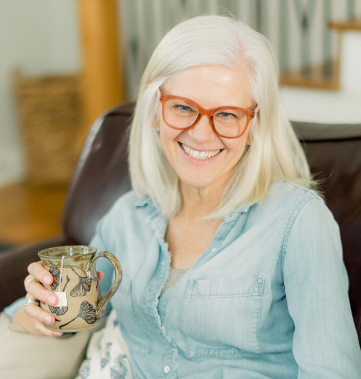
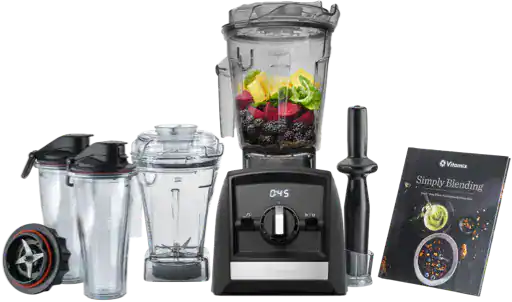













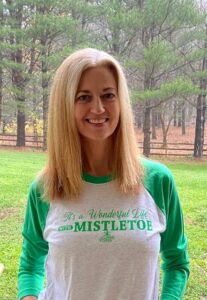 I had heard about Believe Big through my church, the same church that, at that time, the founders were also part of. I was familiar with Ivelisse’s story and her use of mistletoe, so I had spoken to her, then met with one of our local mistletoe providers before I even had my surgery and, in addition to much compassion and helpful information, he started on mistletoe injections at home. I did turn ghost white when I found out the mistletoe was an injectable therapy, that detail somehow escaped me until that appointment! Once I learned how to do it myself, my comfort level increased, but it took time.
I had heard about Believe Big through my church, the same church that, at that time, the founders were also part of. I was familiar with Ivelisse’s story and her use of mistletoe, so I had spoken to her, then met with one of our local mistletoe providers before I even had my surgery and, in addition to much compassion and helpful information, he started on mistletoe injections at home. I did turn ghost white when I found out the mistletoe was an injectable therapy, that detail somehow escaped me until that appointment! Once I learned how to do it myself, my comfort level increased, but it took time.

